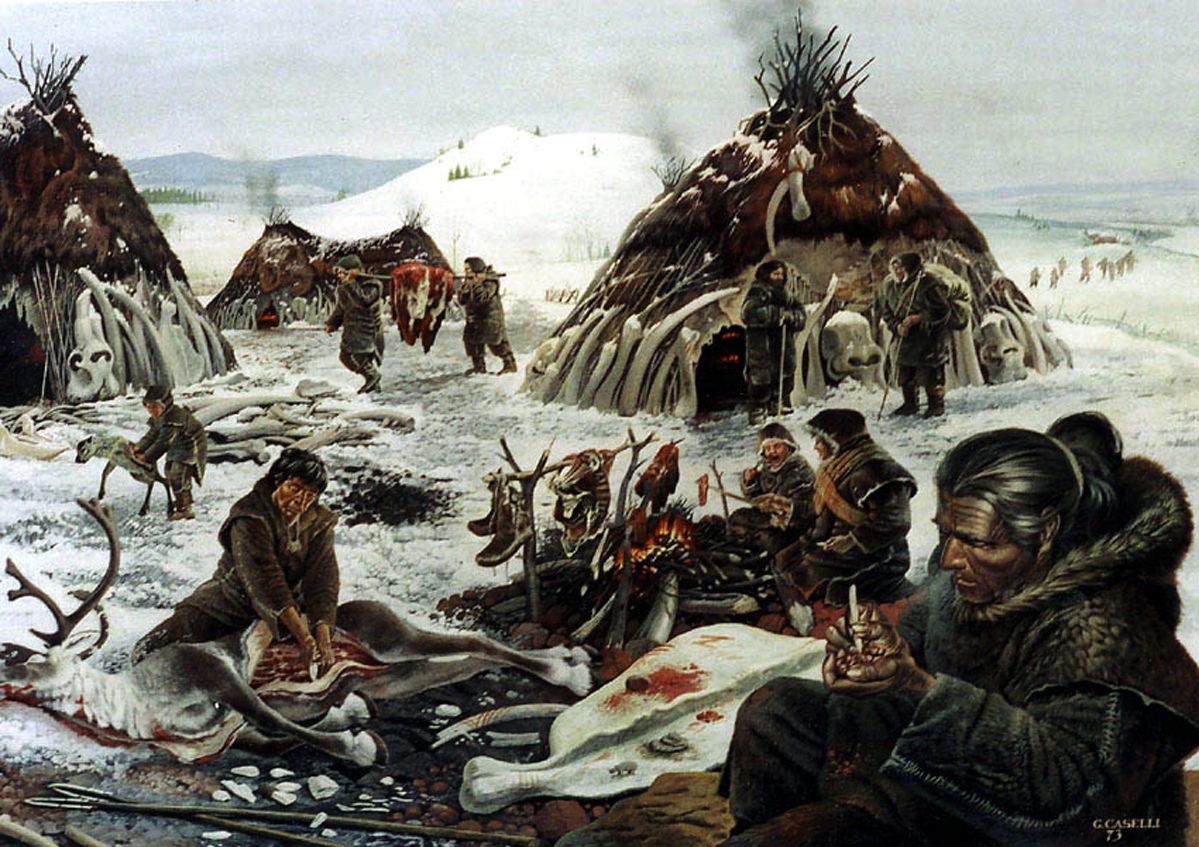Primitive Culture Development
The primitive culture – the oldest stage of world culture. This period is the basis of all modern forms of human activity. It originated in primitive times such branches of cultural activity, such as religion, science, art, poetry, ethics, law, politics, education, and others.
The study of primitive culture in the framework of cultural studies is of great difficulty. This is due to excessive removal of this phase of our time, and with a lack, at the paucity of actual, tangible data on primitive culture, lifestyle and worldview of the first people.
Therefore, the construction of scientific concepts of primitive culture is possible not only on the basis of archeological data (i.e. E. On the basis of the surviving material objects of ancient cultures), but also on developments in ethnographic field (i.e. E. On the basis of the description of modern tribal communities, cut off from civilization).

For more in-depth study of primitive cultures often resort to these religious studies, psychology, linguistics, and others. In this case, scientists are studying not only the material aspects of life of primitive people, many features of their world view, their religious world view, the psychology of man’s relationship to itself, to another, to world in general.
Thus, the primitive culture, we consider characteristic of primitive man through consciousness, i.e. E. After the disclosure of the so-called mythological consciousness.
In cultural studies was a tradition to understand the myth, mythology, at least, in two senses. The first understanding of the myth refers to the Enlightenment and its followers of the ideology of the next century. According to the educational ideology, the myth are “delusions, fantasies, fiction” in the views of the ancient (primitive) people. Also, according to this concept, the myths – a tale of gods and heroes, about the creation of the world and man. Enlightening explanation of the myth is based on the installation of the fact that in a society and culture there is progress, evolution of morals and of human consciousness from the lowest (the primitive, barbaric) level to a higher level – the level of civilization and the rule of reason and science. Therefore myth – it is a product of pre-scientific thinking. It is generated by human weaknesses, fears, lack of knowledge about the world and natural phenomena. Enlightenment were convinced that with the approval of science, new knowledge about the world, the myth will eventually be completely eliminated from the culture and the human world, “a man wiser and will not invent anything more.” That is a myth – a cultural phenomenon inherent only in primitive thinking and at the present stage is virtually absent – these are the views of the representatives of the first concept.
The second understanding of the myth arises in the XX century. A new look at the concept of myth is composed of AF Losev, E. Cassirer, L. Levy-Bruhl, CG Jung, B. Malinowski, Levi-Strauss and others. The main feature of this approach to myth is the increased attention the psychological and phenomenological dimension of culture. This means that the domain of existence of the mythology in the first place is human consciousness. According to the concept of Losev and Jung, myth – are the deepest layers of human consciousness arising in ancient times, but has an effect on the current state of culture and society. Moreover, the spread of myths does not preclude the growth of education, nor advances in science and technology. Just die and lose their power to influence people some myths (obsolete) arise, shall be approved by the new. Thus, according to this concept, a myth like “forever”, it is inherent not only ancient but also modern people. Myth is formed due to human nature, “the man himself wants to myth, the man – a myth-creating creature”, he cannot live without myths and entirely depends on them. According to Jung, the source of myth lies in the “collective unconscious” of man and society. Since the source of the myth – the inner world of man, the many cultural processes can be considered, describe and explain, even through a special state of consciousness – the mythological.
Next, we discuss the main characteristics of the mythological consciousness as reflecting the essence of primitive culture.
Ritual and magic, thus, provide a sense of stability, interrelatedness and interdependence of all things, and most importantly – Refundable constant feeling of his unity with the world.
Mythological consciousness through all of these beliefs has created a sense of human integrity and harmony of life, the whole gave over significant deeper meaning. That is why many say one of the main features of the myth: a myth – it forms the beginning of the meaning of culture is shaped, a visual embodiment of the spiritual level of being, i.e. the adaptation of the spiritual world in terms of human perception…
Despite such an exotic way of thinking, the ancient people in its own way to explore the surrounding their flora and fauna. We know edible, medicinal and poisonous plants. We know the properties and habits of game animals.
In the primitive stage of development of human society has developed – matrilineal clan. Recognition of ancestral ties received public importance, as it became a major constitutive feature of the new production team.
Thus, the psychological significance of primitive culture is that it lays the foundations of human culture. These are the basics: social organization, language, kinship relationships, rituals, art, beginnings of scientific knowledge, principles of regulation of social and productive life – remain with mankind forever, and constitute the essence of its existence.